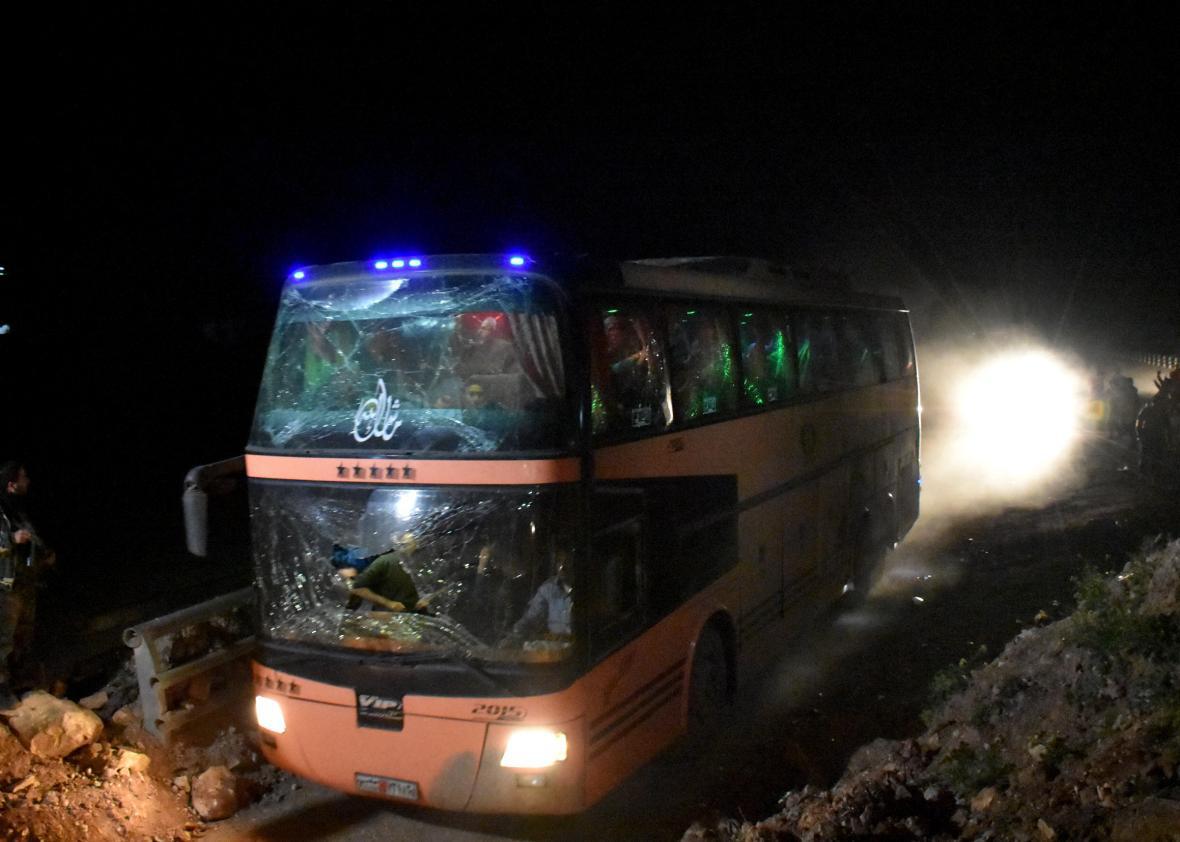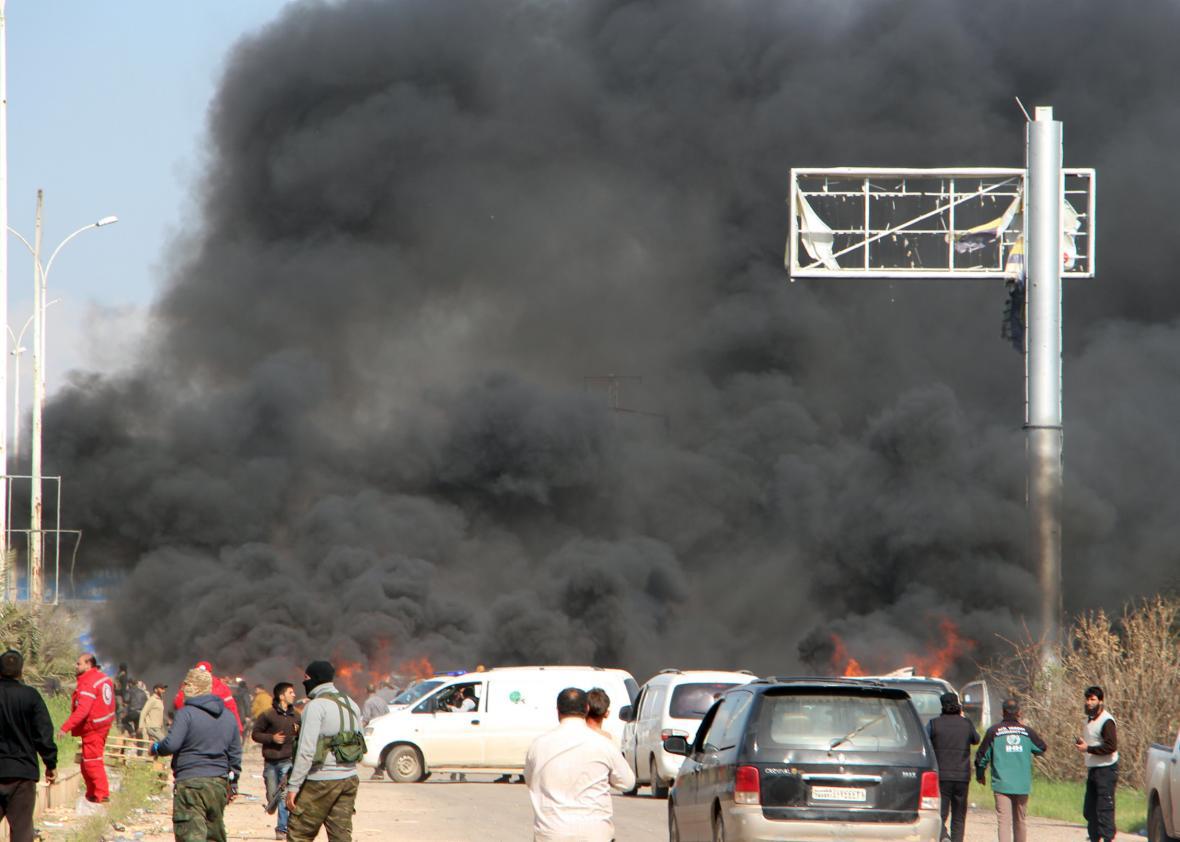A huge blast struck buses full of evacuees from government-held towns and killed at least 100 people, including children, according to the rescue group Syria Civil Defense, popularly known as the White Helmets. The bomber reportedly drove the explosives in a van meant to carry aid right up to a convoy of buses. The evacuees were taking part in a controversial population transfer program that was supposed to take people from pro-regime, but rebel-besieged villages, to regime-held parts of Aleppo.
No one claimed responsibility for the explosion, although pro-government media and rebels pointed fingers at each other. The New York Times points out that “jihadist groups, like the Syrian affiliate of Al Qaeda, have a presence in the area and consider Shiites apostates who should be killed.” Most of the dead were residents of two Shiite villages.

AFP/Getty Images
The blast took part during a complex deal in which approximately 7,000 people were set to be evacuated. Under the agreement, 5,000 people were set to receive safe transfer from government-held towns that are surrounded by rebels and 2,000 left rebel-held towns that are surrounded by government forces. Although the bombing stalled the transfer of people, they did appear to be resuming late Saturday.
A number of evacuations could mean as many as 30,000 people will be transferred over the next 60 days in a move that is highly controversial. Reuters explains:
The deals are unpopular with the Syrian opposition, who say they amount to forced displacement of Assad’s opponents from Syria’s main urban centers in the west of the country.
They are also causing demographic changes because those who are displaced are usually Sunni Muslims, like most of the opposition. Assad is from the minority Alawite sect and is supported by Shi’ite regional allies.
